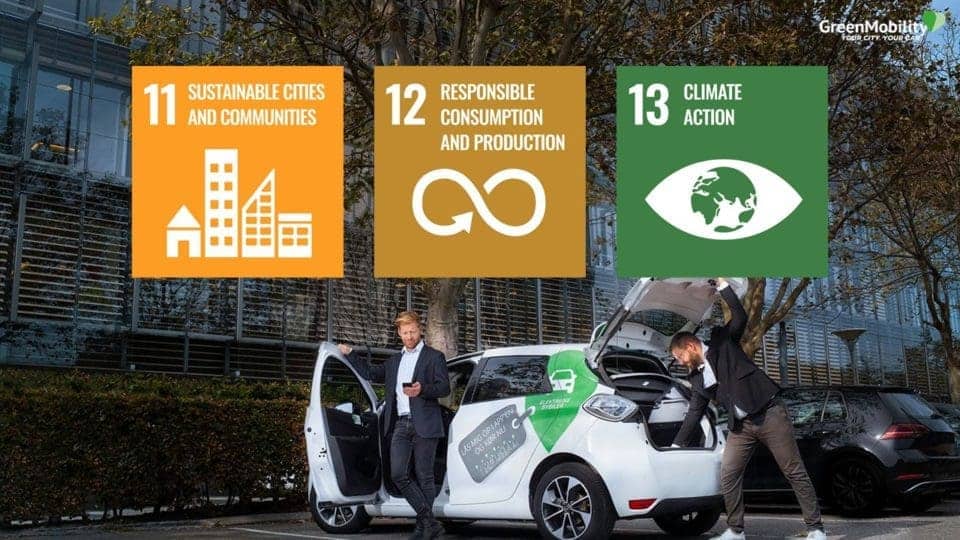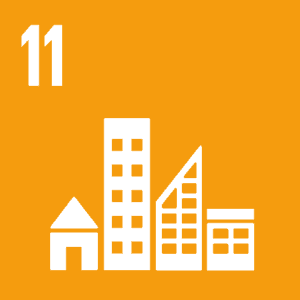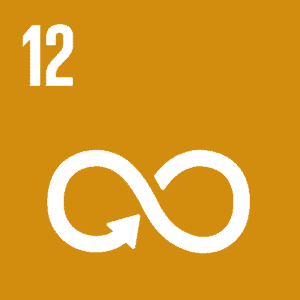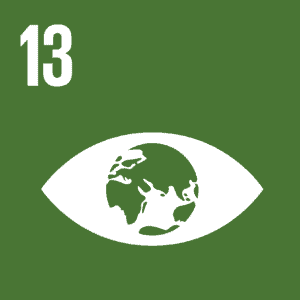How GreenMobility work for The UN Sustainable Development Goals

UN’s 17 Sustainable Development Goals are a call for action by all countries to transform our world into more sustainable living. Among the goals, we especially focus on goals no 11, 12, and 13. But how is that actually done in practice? Get the answer in the following when we introduce how GreenMobility makes a difference to make cities more sustainable through a fleet of shareable cars.
More shareable cars, fewer private ones
Goal 11 – Sustainable Cities and Communities
Less noise, fewer cars and less pollution in the cities. It sounds like a utopia. And it almost is, but during the last four years, we have already made a great effort to get closer to the goal. With our fleet of 1600 electric cars in eleven cities in Europe, we are making an important effort towards creating more sustainable cities. And that is exactly what the UN’s 11th Sustainable Development Goal is about.

More than half of the world’s population lives in urban areas and by 2050 it is expected that two-thirds of the world’s population will live in the cities. Imagine the overload.
Our mobility solution makes it possible to have access to a zero-emission car 24 hours a day without having to bother with the cost of owning a car yourself. By sharing cars instead of owning them, we reduce the number of private cars on the streets, which is a big thing, when in the future there will only be more people in the cities.
By creating a sustainable car-sharing concept, where you through an app find an electric car on the street near you, drive, and park in for instance the other end of town, we make sustainable transportation accessible to everyone (over the age of 18 with a driver’s license).
And more shared cars instead of private cars help reduce climate footprint. On an average trip of 10 km in a GreenMobility car, you save 1,2 kg CO2.
Electric cars made of recycled plastic and recyclable materials

Goal 12 – Responsible Consumption and Production
We reduce our footprint on nature by changing the way we produce and consume. And sustainable consumption and production is exactly what the UN’s 12th Sustainable Development Goal is about. To live up to the goal, we work with sustainable suppliers, such as Renault, which has delivered our fleet of electric cars.
It may not be visible to the eye, but when you drive around in our electric cars, it is recycled plastic and recyclable materials that protect you from rain and wind. Our Renault Zoe cars are produced from 90% recyclable material and two types of recycled plastic. Likewise, the interior fabrics are made from 100% recyclable materials. As if that wasn’t enough, the cars are also very silent. We also ensure that our cars, when they are damaged and no longer in operation, are recycled (both windows, battery, metal, wires) in a sustainable way.
Renewable energy sources and green power
Goal 13 – Climate Action
In Denmark, a third of the CO2 emissions come from transport, and in Copenhagen, almost half of the air pollution with the harmful nitrogen dioxide (NO2) comes from traffic and idling2. Air pollution is an often overlooked problem, and every year more than five times as many people die from air pollution than from traffic accidents.

We can create cleaner air in the cities by changing how we think about mobility and are used to moving around in our urban spaces. And that is one of GreenMobility’s core areas for the UN’s 13th Sustainable Development Goal: Climate Action.
Our fleet consists of 100% of electric cars that emit no harmful substances while driving and primarily run on electricity from renewable energy sources. Our vehicles get electricity from our partners E.ON and NRGi, where the cars are charged with electricity from for instance Danish wind turbines. Here, the climate impact is far less than with petrol and diesel cars.
Our effort towards climate change also means that we are constantly in dialogue with decision-makers and strive to educate and promote the importance of the green agenda and sustainable mobility solutions to customers, companies, and governments.
1 https://agro.au.dk/fileadmin/user_upload/Mogensen_et_al_2016_Foedevarernes_klimaaftryk.pdf
2 https://www.kk.dk/luftforurening
